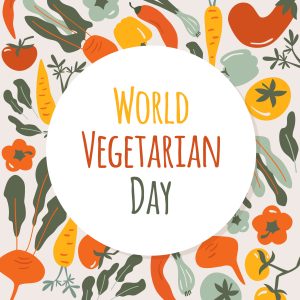
The Many Different Types of Vegetarianism
A vegetarian is a person who does not consume meat or products of animal slaughter due to ethical, moral, or religious concerns. There are many varieties of vegetarianism. Ovo-Lacto vegetarians, for instance, eat eggs and milk, but no other animal products. Adherents of more strict forms of vegetarianism, such as vegans, tend to abstain from consuming anything that may include any kind of animal products or may be made from animal labor, such as animal testing. Other types of vegetarians include raw vegetarianism, where followers only eat raw foods or products that have been dehydrated; and fruitarianism, where adherents only consume fruits and nuts, preferably obtained without any harm to the plant.
In India, members of the Jain religion follow a form of vegetarianism that not only prohibits eating animal products, but also restricts consumption of root vegetables like onions, potatoes, and garlic.
From Religion to Saving the Environment
In many cultures, vegetarianism is an integral part of religion. Many sects of Hinduism, Buddhism, and Jainism prohibit the consumption of meat and animal products, though the use of milk, honey, and sometimes unfertilized poultry eggs is acceptable.
Religious vegetarianism tends to be rooted in a philosophy of non-violence and compassion towards the natural world. Many other people follow vegetarianism as a way to protect the environment – they believe that raising and killing of animals for food negatively affects the environment, creates pollution, and contributes to climate change.
Many follow vegetarianism out of concern for animals and their treatment at farms where they are being raised for food. Others on the hand, adopt the vegetarian diet for its health benefits. Research has shown that a plant-based diet can help reduce the risks of heart disease, diabetes, and some kinds of cancer.